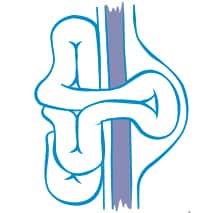
A hernia is a condition in which an internal organ or tissue protrudes through a weak spot in the muscle or tissue that normally holds it in place. Hernias can occur anywhere in the body, but they are most common in the abdomen or groin region.
Hernias can occur after weight loss surgery. These are specific types of hernias that occur uncommonly but can cause symptoms such as reflux or pain.
There are many different types of hernias, but the most common types that occur after weight loss surgery are:
Symptoms of hernias
The symptoms of a hernia can vary depending on the type of hernia and its location. However, some common symptoms of hernias include:
Diagnosis of hernias
If you are experiencing any of the symptoms of a hernia, your doctor will likely take a medical history as well as perform a physical examination. They may also order an ultrasound or CT scan to confirm the diagnosis.
Treatment of hernias
The main treatment for a hernia is surgery to repair the weakened muscle or tissue. This surgery is usually performed laparoscopically (using keyhole surgery).
Recovery after hernia repair surgery
Most people recover from hernia repair surgery quickly as it is performed laparoscopically. You will be able to go home from the hospital generally after a short hospital stay. However in some occasions depending on specific circumstance your hospital stay will be further determined by your doctor.
Preventing hernias after weight loss surgery
There are a few things you can do to help prevent hernias after weight loss surgery:
Conclusion
Hernias are an uncommon but recognised complication after weight loss surgery. However, there are a few things you can do to help prevent hernias and to manage the symptoms if you do develop them. If you are experiencing any of the symptoms of a hernia, talk to your doctor right away.
Additional information for weight loss surgery patients
If you have had weight loss surgery and you are experiencing symptoms of a hernia, it is important to talk to your doctor right away. Hernias can become serious if they are not treated promptly.
Your doctor will be able to discuss the best treatment options for you. Depending on the type and severity of your hernia, your doctor may recommend surgery or other treatments.
If you have had surgery to repair a hernia after weight loss surgery, it is important to follow your doctor’s instructions carefully during your recovery period. This will help to ensure that your hernia does not recur.